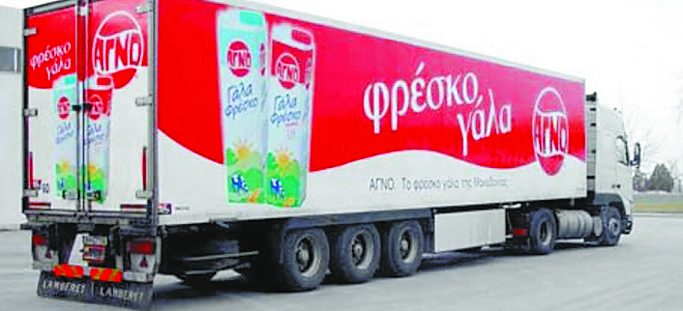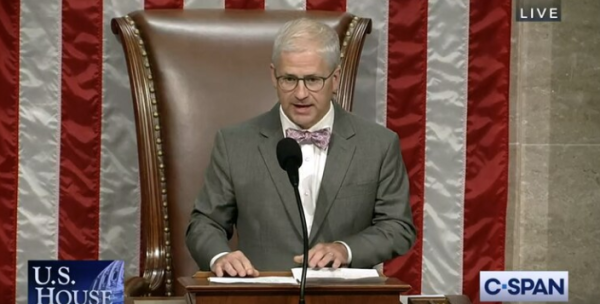
Agno, the first Greek dairy company that put pasteurized milk in the homes of Greek consumers in 1955, or rather what was left of it after the final shutdown in 2014, was acquired by the group Hellenic Dairies belonging to the brothers Dimitris and Michalis Sarantis.
Hellenic Dairies was the only company that participated in yesterday’s public bidding for the acquisition of the facilities and trademarks of the historic northern Helladic dairy industry, paying 7.73 million euros.
“First we have to assess the situation of the industrial plant and then we will decide on the future. There is time until the process of full transfer is completed,” said Mr. Dimitris Sarantis, president of the Hellenic Dairies group, to OT.
“In fact, this is an industrial plot in a good position, for which we have various plans”, Mr. Sarantis noted, stressing, however, that at the moment what is of concern is the management of the effects of high energy costs and the problems of farmers due to price increases operating costs.
However, according to Mr. Sarantis, the prevailing scenario is to create a new production unit on the plot of 130 acres, the object of which will be a new product category.
The utilization of the acquired brands will come sooner, which will gradually return to the refrigerators of the supermarkets the well-known logo of Agno.
According to Mr. Sarantis, the property and the brands of Agno will become the property of the Hellenic Dairies group within the next 2-3 months.
What the Hellenic Dairies group acquired
The auction concerned the sale of the area of 132,239 square meters in the areas of the communities of Perivolaki, Lagyna and Kavallari in the municipality of Lagada, in Thessaloniki, together with the buildings and equipment, of the trademark AGNO and the individual trademarks (AGNO, CHOCO MILK, VITALIA AGNO) to which the bankrupt company has titles.
The price of 7.73 million euros will be allocated for the satisfaction of debts to insurance funds, banks and employees, with Hellenic Dairies SA. promising the rebirth of Agno and its transformation into a modern business that will meet the needs of consumers.
The Sarantis brothers’ group had a turnover of 427 million euros in 2021, remaining the largest dairy industry in the country.
It has 7 factories and an investment rate that reaches 40 million euros per year, topping 193 million euros in the last five years.
In the last two years, the KLIAFA soft drinks and the carbonated water DOUMPIA have been added to the group’s portfolio, next to OLYMPUS, TYRAS and RODOPI.
How Agno’s milk went sour
For 49 years – from 1950 when it was founded in Thessaloniki until 1999, when it was placed under special liquidation – Agno was a cooperative dairy company under the name “Association of Cow Cooperatives of Thessaloniki AGNO”, holding an important position in the dairy industry with many firsts.
It is characteristic that in 1955, it became the first milk pasteurization and bottling industry in Greece, while in the 80’s with a new – very expensive – factory in Lagadas it gained more recognition due to the advertisement using the famous basketball player Nikos Galis, who played for Aris at that time.
In 1997 it had sales of 19 billion drachmas and debts of 23 billion drachmas to the Agricultural Bank. Thus, two years later it entered a special liquidation regime.
The bidding, which followed, in 2000, is registered with the Agricultural Bank, which acquired the dairy industry for 32 billion drachmas. DELTA and FAGE participated in the same tender, with a proposal of 21 billion drachmas.
The acquisition by Kolios
In June 2003, after an adventurous tender process, in which the companies Mevgal, Delta and Tyra also participated, Nikos Kolios bought Agno from the Agricultural Bank, which has been trying to divest itself from its non-financial participations.
The interesting thing is that the acquisition was made with a loan from the Agricultural Bank as the bank agreed to grant a loan to the company for the consolidation of Agno. This complaint was then made by the president of PASEGES, Janetos Karamihas, and the president of the union of workers in the tobacco industry SEKAP.
Kolios SA acquired AGNO, debt-free, by paying an advance of 1.2 million euros and taking a loan of another 10 million euros from the bank, which was the seller. Overall, the Kolios dairy industry paid € 12.25 million for the acquisition and claimed that in the period 2004-2011 it allocated an additional € 35 million for investments in the modernization of production equipment and another € 12 million to capital increases.
The “breaking” of prices and bakeries
In 2006, Nikos Kolios shook the market again, “breaking” the prices of milk through the much-discussed agreement of Agno with the organization of the bakers of Athens.
The bakeries of the capital had the branded fresh milk of the company at the price of 89 cents per liter until the end of 2007, provided that they would not return the quantities that would remain unsold.
The first “anonymous” milk
However, the big upheaval in the dairy market had preceded when Nikos Kolios, signing an agreement with Dia Hellas SA, produced in 2005 the first “anonymous” milk in Greece.
The agreement was terminated – rather violently – when EFET announced that an inspection at Agno’s premises revealed that the milk bottles had misleading dates regarding the pasteurization and expiration of the product.
For its part, it was argued that the termination of the contract with the chain was the inability to cover its nationwide network of stores.
Bankruptcy
However, Nikos Kolios also emerged as a pioneer in terms of Bankruptcy Article 99, as Agno’s appeal to the consolidation provisions in 2012 was the first to be made in the dairy sector. The application for Article 99 was rejected.
In September 2014, Agno filed for bankruptcy and in December the bankruptcy trustee began recording the company’s assets.
From 2003, when it was sold until the final shutdown, in 2014, with debts of 50 million euros, the historic dairy industry has never shown profit.
“From August 2012, AGNO began not to meet its financial obligations to creditors. In its application for Article 99, it relied on a lack of liquidity, as a result of which it was unable to repay its obligations. During the period between the filing of the reorganization application and its discussion (22/02/2013), AGNO tried to selectively pay some of the debts. “Any payments made in the interim period were methodical, with the sole purpose of AGNO to achieve the continuation of its operation and the support – on behalf of the creditors – of the application for inclusion in Article 99”, the employees claimed at the time, complaining that AGNO’s transfers to KOLIOS (vehicles and brand use) “must be checked as fictitious in the context of the bankruptcy process”.
The barren auctions
This was followed by several auctions, all of which were barren, although the price was gradually reduced. In 2017 the minimum price was set at 18.28 million euros, in 2018 at 15 million euros and in 2019 at 10 million euros.
Latest News

Airbnb: Greece’s Short-Term Rentals Dip in March Amid Easter Shift
Data from analytics firm AirDNA shows that average occupancy for short-term rentals dropped to 45% in March, down from 49% the same month last year.

Easter Week in Greece: Holy Friday in Orthodoxy Today
At the Vespers service on Friday evening the image of Christ is removed from the Cross and wrapped in a white cloth

Meloni and Trump Meet in Washington, Vow to Strengthen Western Ties
“I am 100% sure there will be no problems reaching a deal on tariffs with the EU—none whatsoever,” Trump stressed.

ECB Cuts Interest Rates by 25 Basis Points in Expected Move
The ECB’s Governing Council opted to lower the deposit facility rate—the benchmark for signaling monetary policy direction—citing an updated assessment of inflation prospects, the dynamics of underlying inflation, and the strength of monetary policy transmission.

Current Account Deficit Fell by €573.2ml Feb. 2025: BoG
The improvement of Greece’s current account was mainly attributed to a more robust balance of goods and, to a lesser extent, an improved primary income account

Hellenic Food Authority Issues Food Safety Tips for Easter
Food safety tips on how to make sure your lamb has been properly inspected and your eggs stay fresh.

Greek Kiwifruit Exports Smash 200,000-Ton Mark, Setting New Record
According to data by the Association of Greek Fruit, Vegetable and Juice Exporters, Incofruit Hellas, between September 1, 2024, and April 17, 2025, kiwifruit exports increased by 14.2%.

Easter Tourism Boom: Greece Sees 18.3% Surge in Hotel Bookings
Among foreign markets, Israel has emerged as the biggest growth driver, with hotel bookings more than doubling—up 178.5% year-on-year.

Greece to Launch Fast-Track Tender for Offshore Hydrocarbon Exploration
Last week, Papastavrou signed the acceptance of interest for the two Cretan blocks, while similar decisions regarding the two Ionian Sea blocks were signed by his predecessor

American-Hellenic Chamber of Commerce to Open Washington D.C. Branch
AmCham's new office aims aims to deepen U.S.-Greece economic ties and promote investment and innovation between the two countries







![Πλημμύρες: Σημειώθηκαν σε επίπεδα ρεκόρ στην Ευρώπη το 2024 [γράφημα]](https://www.ot.gr/wp-content/uploads/2025/04/FLOOD_HUNGRY-90x90.jpg)




![Airbnb: Πτωτικά κινήθηκε η ζήτηση τον Μάρτιο – Τι δείχνουν τα στοιχεία [γράφημα]](https://www.ot.gr/wp-content/uploads/2024/07/airbnb-gba8e58468_1280-1-90x90.jpg)

























![Airbnb: Πτωτικά κινήθηκε η ζήτηση τον Μάρτιο – Τι δείχνουν τα στοιχεία [γράφημα]](https://www.ot.gr/wp-content/uploads/2024/07/airbnb-gba8e58468_1280-1-600x500.jpg)


 Αριθμός Πιστοποίησης
Αριθμός Πιστοποίησης